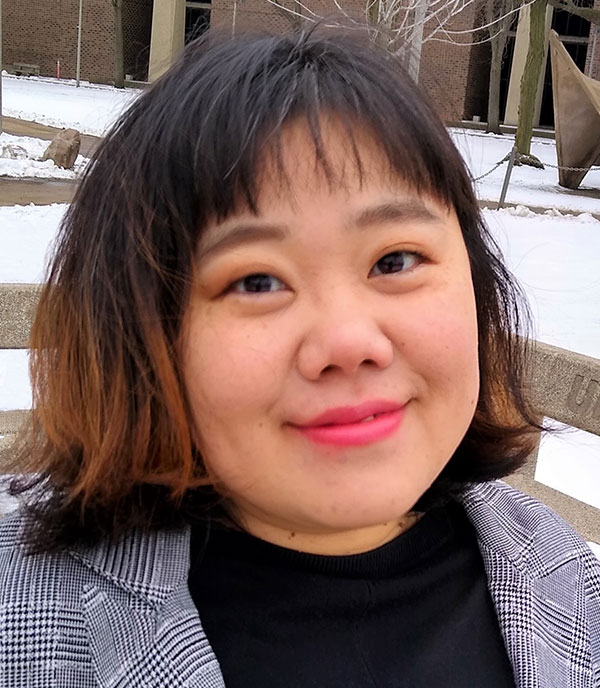Expertise with Survivors of Gender-Based Violence
Article part 1 Heading link

New faculty member Assistant Professor Shih-Ying Cheng’s passion for working with survivors of gender-based violence (GBV) is rooted in personal experiences. “I have family members who have survived GBV. And having worked with survivors, I admire their strength and how resourceful they are,” she says, “but I also see how vulnerable they can be. I had a client who was almost killed by her husband, and when I visited her in the hospital, I told myself that I didn’t want to see that happen again.”
Before coming to the U.S. from Taiwan, Dr. Cheng worked with survivors of GBV. She explains that GBV includes intimate partner violence (IPV), sexual harassment, and sexual assault. “Different forms have different impacts on survivors. For example, survivors of sexual harassment tend to engage in avoidance, which can harm their career and what they achieve professionally,” she explains. “And then IPV may involve economic abuse, the abuser can exhibit abusive control, sabotaging their career or restricting contact with their colleagues or their supervisor. The impacts of IPV may be broad and pervasive.”
IPV may also impact children, even when they are not direct recipients of violence. After witnessing abusive behavior in their home, they may believe anger or abuse is an appropriate mode of communication and problem-solving, and the violence is then transmitted intergenerationally. “Parents who experience IPV are more likely to engage in harsh parenting or physical abuse, and it can contribute to further child maltreatment,” she says. “It is a complex process, and we need to understand the complexity and avoid stigmatizing the survivors.”
She has also worked with marriage immigrants who entered Taiwan through international marriages, mostly via marriage brokers. While the comparison of marriage immigration to human trafficking might seem self-evident, and in some cases may be true, Dr. Cheng urges caution in describing it as trafficking. “For activists and researchers, it might be easier to frame it as human trafficking, but we need to be very careful,” she explains. “The danger is in underestimating the agency among women who choose to immigrate. They may, for example, go to great lengths to prove the validity of their marriage, so they can go through the immigration process more smoothly.”
quote 1 Heading link
Having worked with survivors, I admire their strength and how resourceful they are, but I also see how vulnerable they can be. I had a client who was almost killed by her husband, and when I visited her in the hospital, I told myself that I didn’t want to see that happen again.
article part 2 Heading link
Regarding interventions, Dr. Cheng conducted a meta-analysis of the Batterer Intervention Program, a popular intervention in the U.S., and found that it is not highly effective in stopping abuse. “We found that effectiveness is more likely due to the characteristics of the participants, their own dedication to the program,” she says, adding that certain cognitive behavioral interventions can be effective in dealing with PTSD or depression among survivors.
Dr. Cheng wants to examine GBV in vulnerable populations in the U.S., especially recent immigrants. She has firsthand experience with being an immigrant and the culture shocks involved. “While my experience is probably different from that of other immigrants, I am very interested in the intersection of GBV with the experience of being a recent immigrant,” she says. “Chicago is a perfect city to have the opportunity to live with recent immigrants and learn about their experiences from them.”
quote 2 Heading link
What attracted me to Jane Addams College of Social Work was all the work being done with marginalized populations. And that is exactly what I want to pursue in my life and my career; I want to be useful, and I want my research to be meaningful and have impact in the real world.
article part 3 Heading link
She says that what drew her to JACSW was the College’s emphasis on social justice for marginalized and vulnerable populations. “Three years ago, I came to UIC specifically to visit the Hull-House Museum, to learn about Jane Addams and the settlement house movement. But what attracted me to Jane Addams College of Social Work was all the work being done with marginalized populations,” Dr. Cheng says. “And that is exactly what I want to pursue in my life and my career; I want to be useful, and I want my research to be meaningful and have impact in the real world.”